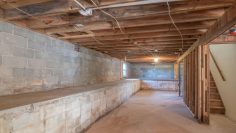
Breathe Easy, Save Money: Top Benefits of Upgrading Your HVAC System
Enhanced Air Quality
The enhanced interior air quality is one of the main advantages of contemporary HVAC systems. Upgraded HVAC units can efficiently remove allergens, pollutants, and other dangerous particles thanks to their sophisticated filtering systems. Maintaining a healthy air quality is critical, particularly in homes with young children and senior citizens. Improved systems guarantee cleaner air, which helps reduce allergies and respiratory issues by filtering out dust, pet dander, and other impurities. A more comfortable and healthful living environment is produced by improved air quality, which also results in fewer smells and lower humidity levels.
Cost Savings
The initial investment in an upgraded HVAC system may seem high, but the long-term savings make it worthwhile. HVAC upgrade benefits can save homeowners a great deal on upkeep and repairs over time. A new system is less likely to break down, and if well-maintained, it ensures efficiency for years. Additionally, many upgraded HVAC systems have extended warranties, providing further financial security and peace of mind. These warranties can cover parts, labor, and even routine maintenance, ensuring you won’t be hit with unexpected expenses.
Better Home Comfort
Another undeniable advantage of upgrading your HVAC system is the enhanced comfort level within your home. Modern systems operate more quietly and provide consistent temperatures throughout the house, eliminating hot or cold spots. This consistency ensures that every room in your home is as comfortable as you want. Advanced HVAC units often include features like zoned heating and cooling, allowing you to customize temperatures for different areas of your home. This tailored approach boosts comfort and enhances energy efficiency by heating or cooling only the used spaces.
Environmental Benefits
Switching to an HVAC system that uses less energy helps the environment—decreased energy usage results in lower greenhouse gas emissions. Many modern HVAC units also use environmentally friendly refrigerants, reducing your carbon footprint. According to EPA guidelines, energy-efficient appliances are vital in sustainable living. Choosing to upgrade supports environmental sustainability and aligns with increasing regulatory standards focused on reducing environmental impact.
Increased Home Value
An improved HVAC system can significantly increase your home’s market value. Homes with modern, efficient systems are more likely to attract potential buyers. It’s a feature that reassures them about possible future savings on energy and repair costs. As a homeowner looking to sell soon, an efficient HVAC system can be a compelling selling point. Realtors often highlight energy-efficient improvements when marketing homes, and potential buyers could be willing to pay a premium for a property that promises lower utility bills and fewer maintenance worries.
Technological Advancements
The HVAC industry has experienced numerous technological advancements over the years. Upgraded systems often include smart thermostats, programmable settings, and remote monitoring capabilities. These innovations allow for greater control over your home’s climate and can be easily integrated into your existing smart home setup. Smart thermostats, for instance, may automatically adjust temperatures based on your schedule and maximize energy efficiency without compromising comfort. With remote monitoring and control, you can change settings from your smartphone, ensuring your home is always at the perfect temperature when you arrive.
Improved Energy Efficiency
Upgrading your HVAC system can significantly improve your home’s energy efficiency. The energy consumption of modern HVAC systems is reduced by design. According to the Department of Energy, energy-efficient systems can minimize heat loss and power usage, translating to substantial savings on utility bills. This efficiency can be particularly beneficial during extreme weather conditions when heating and cooling demands peak. Moreover, energy-efficient HVAC systems often have enhanced features like variable speed motors and advanced thermostats, further optimizing energy use.
Long-Term Reliability
Lastly, contemporary HVAC systems are the most reliable. If properly maintained, these systems can significantly outlive their older equivalents. You won’t have to worry about frequent failures or replacements because newer models are built with materials and technologies that resist wear and strain. Your HVAC system will last longer if it receives routine maintenance and is assisted by better diagnostic and alarm systems that guarantee possible problems are discovered early. You may rest easy knowing that your house will remain cozy and functional for a long time because of its dependability.
Photo by Max Vakhtbovycn










